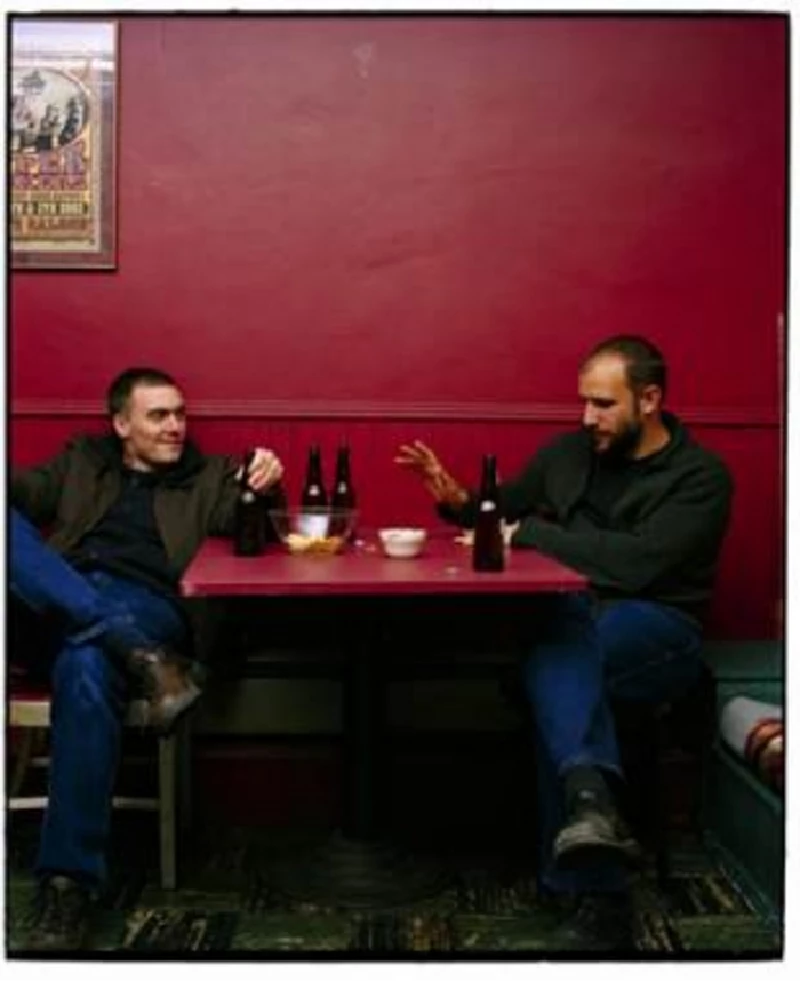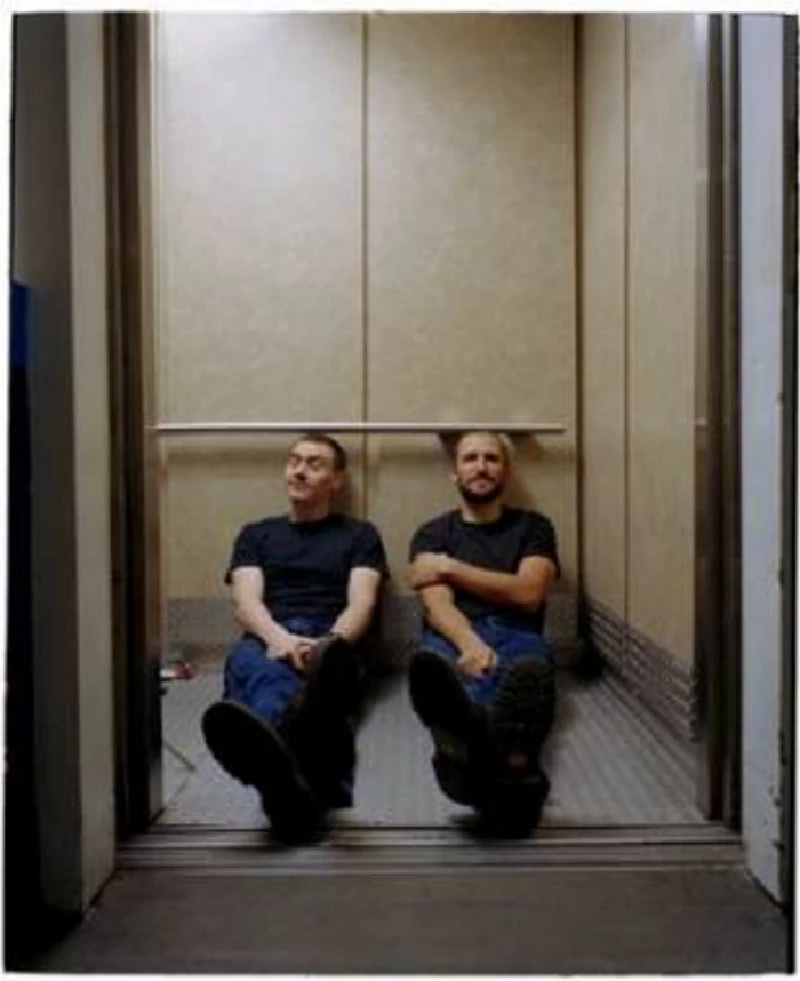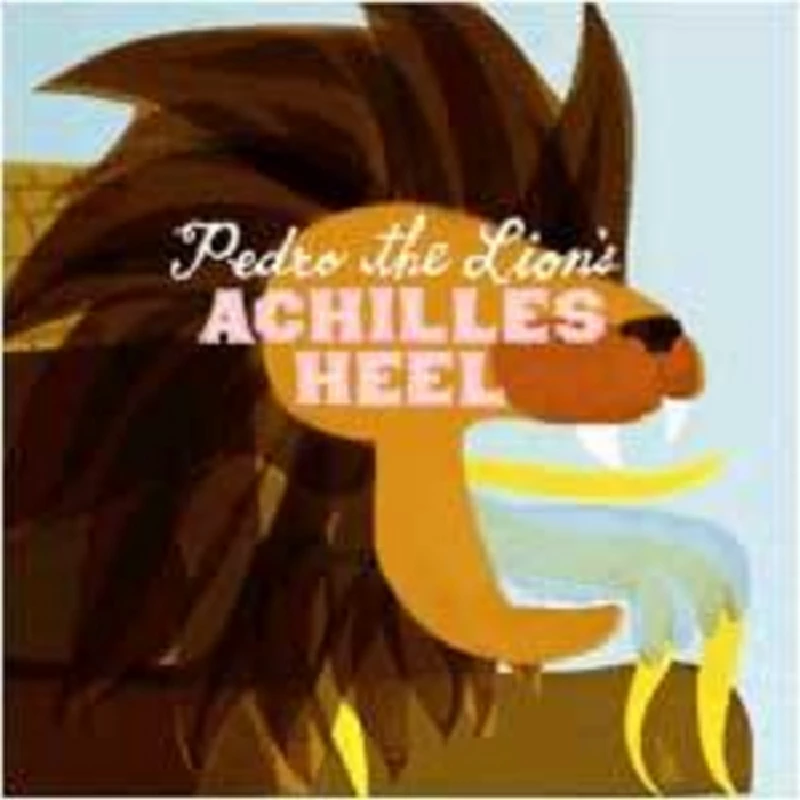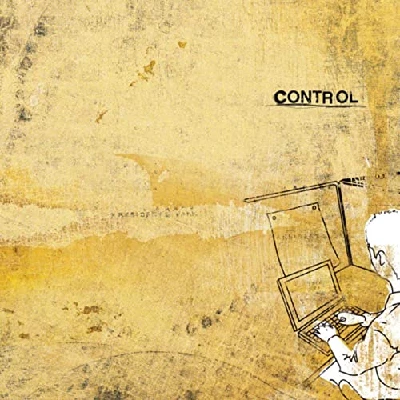Pedro The Lion - Interview
by John Clarkson
published: 17 / 5 / 2004

intro
Lo-fi Seattle-based group Pedro the Lion have developed a reputation for deep pessimism. Frontman David Bazan talks to John Clarkson about why their new album, 'Achilles Heel', represents a change in direction
David Bazan is one of rock music’s thinkers. A pessimist but also a humanitarian, a Christian but one assuaged with as many doubts as beliefs, his band Pedro the Lion’s scuffed-up form of lo-fi rock has attracted a widening and similarly questioning audience who, like Bazan, also see in life no easy solutions. Pedro the Lion formed in Seattle and recorded their debut EP, ‘Whole’, for the Touch and Go label in 1997. Later that year the original five-piece line-up of the group broke up, but Bazan decided to keep their name as a vehicle for his own solo songwriting efforts, taking on and enlisting other members into the band on a temporary basis as studio and live work demanded. Pedro the Lion’s first album, ‘It’s Hard to Find a Friend’, was released on Made in Mexico in 1998. In 1999 Bazan signed to the Delaware-based label, Jade Tree, with whom he has been ever since. Pedro the Lion have gone on to release another three albums, ‘Winners Never Quit’ (2000), ‘Control’ (2002) and in April of this year their latest offering ‘Achilles Heel’. ‘Achilles Heel’ was recorded in Bazan’s own home studio, and, as well as Bazan, also features the talents of two other musicians, James McAlister, who also plays drums with Pedro the Lion’s Jade Tree label mates Ester Drang , and Bazan’s long-term cohort, TW (Tim) Walsh, who between ‘Control’ and this album has joined the band as its second full-time member. While ‘Winners Never Quit’, which told of two brothers ' self-destruction through over-ambition, and ‘Control’, which was about the murderous conclusion to a failed marriage, were both concept albums, ‘Achilles Heel’ is more in line with 'It’s Hard to Find a Friend’ in that is topical in tone. Bazan has gained a reputation, especially after the ultra-dark ‘Control’, for being bleak. ‘Achilles Heel’, which balances his world-worn vocals against dirging guitars and scuzzed-out keyboards, is in many ways in a similar vein. ‘Bands Without Managers’ tells of 15 passenger bus crashes. The female characters in ‘I Do’ and in ‘Discretion’ are both casualties of the sex wars. A Marxist father in ‘A Simple Plan’ meanwhile is initially thankful when his breadwinner function is relieved by the dawn of communism, but then becomes suicidal. In other ways though ‘Achilles Heel’ also offers more hope and humour than Bazan’s other albums. Talking in early April on the phone from Athens, Georgia in the midst of a joint pre-release tour with Death Can for Cutie, David Bazan spoke to Pennyblackmusic about some of the contrasts in 'Achilles Heel' PB : Why did you decide to call your new album ‘Achilles Heel’ ? DB : We had several names for the album on the table, and of all the ones we had to choose from I thought that that was the best one. So did TW who helped out with a lot of the decisions. We liked the way it looked on paper. We liked the way it sounded. It has an interesting shape and ring to it, and indicates a vulnerability that we thought tied in with the whole tone of the record. Many of the characters on the record are dealing with crisis situations in their lives, and often suddenly discovering what their vulnerable spots are. PB : You have developed a reputation, especially after the last album ‘Control’ for being very bleak. How do you see ‘Achilles Heel’ in comparision to that record ? Do you see it as being less or more bleak ? DB : I would say that it is less bleak. The main difference in ‘Achilles Heel’ is that it is more multi-faceted than ‘Control’ was. ‘Control’ was very, very monochrome. It was an unrelentingtly dark album, whereas ‘Achilles Heel’ I think has an element of that in it, but also elements of humour and of self-deprecation. I feel that ‘Achilles Heel’ does not take itself as seriously as ‘Control’ did. For that reason alone, it is less bleak. It is not nearly as ominous and overbearing. PB : One gets the impression from listening to ‘Achilles Heel’ that you had a lot of fun recording it. Was that the case ? DB : Yeah, definitely. There were a couple of times when we were in the studio recording the album , and I would become obsessive over a guitar sound or something like that, and Tim would say “If you spend three days on this guitar sound, that’s the way the record is going to sound. People are going to say they must have really worked hard on making the sound right. What we want is people to hear us having fun.” We really tried to avoid becoming obsessive about stuff, which is rarely enjoyable, and to put an emphasis instead on having a good time instead. PB : It seems to be a much more fluid record than ‘Control’. As you were trying to avoid worrying less about the smaller details, was it recorded then over a much shorter time period ? DB : We in fact probably spent about the same amount of time. We just spent more time doing more organic activities like playing music together and figuring out songs, and less doing things like sitting in front of the speakers trying to figure out guitar sounds. The album was also recorded piece meal and over a couple of months. We took breaks for Christmas, and also for other things and occasions. It took us quite a long time to record. PB : You all played the guitars, the synthesisers and the drums. Did you have clearly defined roles on the album before you began or did you record it on a much more casual basis with people taking on roles as it progressed ? DB : It was recorded on a much more casual basis. When we began recording we were still trying to figure out what the angle of the group was going to be. The line-up of the band had been until then something of a revolving door, but Tim had come on and we had decided he was going to be a permanent fixture, so we were trying to figure out “Is he going to be the bass player ? Is he going to be the drummer ? Or what ?” We can all play different things, and at the beginning there was quite a lot of friction about that. One day I would come in and say “Let’s do it like this’”, but then the next day Tim would say “Let’s do it like this instead” so we finally came to the decision to do just what was best for each song in each case. It worked out better in the end. PB : The album was recorded in your own studio. Where is that ? DB : It’s about an hour and a half out of Seattle and is on the Kydsnapp Peninsular at the edge of Washington State. If you’re right handed it’s kind of on the thumb of it. I live about a hundred and fifty feet from the studio. It’s on the same land where I live.There are always pluses and minuses to recording in your own studio,but I think for our sensibilities the pluses definitely outweigh the minuses. The vibe and the comfortability of the recording session is so much more enhanced. We like it better that way for sure. PB : You’ve recorded with Tim before . He has been with you quite a while now, but you have also taken on another new recruit, James McAlister, for this album Who is he ? DB : He’s the drummer in Ester Drang, who are friends of ours. I met him a couple of years ago and he is a really excellent drummer and percussionist and also plays keyboards well. We decided it would be good to have another guy around, so we could use someone to play on on the tracks live, and to have these three guys making music together and mutli-tracking stuff. He was a really good option for us because we like him as a person, and also because he is very enthusiastic and has plenty of good ideas. He’s not going to be in the band regularly because he’s got his own band. For that session though we really enjoyed having him around. PB : Your last two albums, ‘Winners Never Quit’ and ‘Control’, were concept-based, but this one goes back to the style of your first album, ‘It’s Hard’s to Find a Friend’, in that all the songs are topical. Did you make a conscious decision to go down that course even before you started writing the songs? DB : Yes, I definitely did. I had come round after ‘Control’ to the idea of the creative process being more about discovery than it is trying to communicate some kind of preordained idea. I was also trying to rely on my subconscious more. Tim was saying that he had had read that Neil Young always tries to write in the subconscious. If he starts thinking too over consciously about a song he will just leave it, and come back later to it, so I tried approaching it more that way. Each song, therefore, stands on its own more. I also wanted to go back to the vibe of ’It’s Hard to Find a Friend’, especially after ‘Control’ which was more of a hard rock record. I don’t really regret having made it, but in the process I realised that that’s not really what I want to spend the rest of my time doing. PB : The first track on ‘Achilles Heel’ is ‘Bands With Managers’. At one level it seems to be fairly condemning attack on corporate rock, but you also at the end of the song describe a van crash which involves 15 passengers. Where did you get the idea about the crash from ? DB : In the US the main kind of vans are referred to as 15 passengers. There were all these articles coming out about how the centre of balance on many of them was too high, so they would keep rolling over, and there was talk of maybe recalling some of them. We usually use those kind of vans when the band is touring,At night especially when I had done with my driving shift, I would usually go to lay down in the back to sleep. Sometimes that became really hard. You’re scared because if the guy driving is changing lanes and you hear him hit the bumps on the road you picture yourself crashing and you just end up anxious, so so that I could sleep I started doing this thing where at first I would ask myself what I was worried about, what was the worst thing that could happen, and that was that I would die . I , therefore, started singing this thing to myself when I wanted to go to sleep about whoever it was that was driving, “ I trust, TW Walsh, and I am not afraid to die” or whoever as a mantra. I would just say that to myself and then usually I would always be able to go to sleep after that, and that was just something that would help me, and so I actually ended up putting that very same line into the song. PB :There is a subtext of sexism to some of the songs. The wife in ‘I Do’ is reduced to a function, while on ‘Discretion’ it made quite clear that the wife “sleeps in her husband’s bed”. Where did you take the inspiration for that from ? DB : Many of the men in my life, such as my grandfathers and uncles, have been from the old school and they definitely influenced the album . The album references that, and makes a comment on it. Some of the male characters on the record are struggling with manhood and what that means, particulary now. What masculinity is ? I think a lot of fear and insecurity comes out of that, and that when someone is fearful or insecure they tend to lash out at other people. Other references on the album though I think are really funny, There are references to when people make statements like “Oh, the Mum wears the pants in that family”. Those are euphenisms that I find really comical. PB : On ‘A Simple Plan’ the father’s role of breadwinner is relieved by the dawn of communism, but at the the end of the song, despite him having got what he wants, it ends with him alone in the bedroom with his shotgun and about to kill himself. Is the point of that song that there is a danger in getting what you want ? DB : Yes, definitely. I am pretty liberal politically,but nevertheless still wanted to ask the question if there was some sort of revolution and you got everything you wanted if that would effect you negatively. If you’re busy fighting for something you can sometimes be so distracted that you forgot your other problems or your depression or whatever. I was contemplating communism a little as well. I rely a lot on the fact that I have to find my own means of providing and earning money, and was wondering what the effects would be psychologically if suddenly you didn’t have to. It ’s a pretty cliched argument in some ways, but it was an angle I still wanted to explore PB : Do you see your songs as modern day allegories and parables ? DB : No, I used to but I don’t anymore. I feel that with allegories and parables there’s a knowing sort of aloofness to them where the writer or the storyteller is making this observation, sometimes of real brilliance, and is sort of above and beyond what is going on in the story. I feel uncomfortable about doing that myself. In my songwriting I am usually trying to make sense of the things I am having to face. I don’t particulary want to step outside or beyond that. PB : You’re from a Christian background and you describe yourself as a Christian, yet you seem to take issue with a lot of Christian tradition and absolutism. Do you think that is a fair assessment ? DB : I think so. There are things I am not sure about, but I would, however, still describe myself as a Christian I do , however,take issue with aboslutism and traditionalism. That’s absolutely true. PB : Your music, unlike a lot of other Christian rock music has proved very appealing to many non-Christians. Do you think that a lot of non-Christians find your music appealing because you’re so open about your doubts ? DB : It’s hard to know on a wide scale exactly who is listening , but I have run into people who don’t believe in the same way that do, but who still find our music appealing.If someone makes themselves vulnerable and shows their doubts about something I think it is appealing to other people because they are dealing with questions that we are all concerned with, not necessarily about God, because some people could’t care less, but about human interaction and purpose in our lives. If somebody is willing to have an open-ended dialogue about that I know that’s compelling to me when I listen to music no matter what stripes they’re wearing and what creed they are coming from. I enjoy being involved in that sort of cultural dialogue. PB : The group’s been playing some pre-release dates with Death Cab for Cutie. You’re actually in Athens in Georgia tonight. How’s that tour been going ? DB : It’s been great. I have known those guys for about seven years, and they’re really good friends and their band is extremely successful. We’re getting to play to maybe twice as big an audience as we would normally and all those people have been really receptive to what we’re doing. For us it’s been going very well friend-wise, audience-wise, and also the shows have been great. People have been really attentive and supportive. PB : What other plans do you have for the future once you have done this tour and once you have got the album out ? DB : We’re going to do 40 days in the United States starting June 1st and then we’re going to come over and play in Europe and the UK. The last time we did the UK at the end of the trip, so, if we do it the same way, that will be the end of August. PB : Thank you very much.
Picture Gallery:-



reviews |
|
Control (2002) |

|
| Intimate but also aggressive third album and cautionary tale from the highly acclaimed Seattle musician David Bazan, who works under the moniker of Pedro the Lion |
| Winners Never Quit (2001) |
most viewed articles
current edition
Carl Ewens - David Bowie 1964 to 1982 On Track: Every Album, Every SongArmory Show - Interview with Richard Jobson
John McKay - Interview
Colin Blunstone - Thalia Hall, Chicago, 16/7/2025
Bathers - Photoscapes 1
Billie Eilish - O2 Arena, London, 10/7/2025
Loft - Interview
Visor Fest - Valencia, Spain, 26/9/2025...27/9/2025
Sir Tim Rice - Interview
Robert Forster - Interview
previous editions
Heavenly - P.U.N.K. Girl EPManic Street Preachers - (Gig of a Lifetime) Millennium Stadium, Cardiff, December 1999
Beautiful South - Ten Songs That Made Me Love...
Peter Perrett - In Dreams Begin Responsibilities Interview Part One
Boomtown Rats - Ten Songs That Made Me Love....
Oasis - Oasis, Earl's Court, London, 1995
Coldplay - Wembley Arena. London, 16/8/2022
Trudie Myerscough-Harris - Interview
Pixies - Ten Songs That Made Me Love...
Prolapse - Interview
most viewed reviews
current edition
Davey Woodward - Mumbo in the JumboSick Man of Europe - The Sick Man of Europe
Lucy Spraggan - Other Sides of the Moon
Blueboy - 2
Amy Macdonald - Is This What You've Been Waiting For?
Bush - I Beat Loneliness
Suzanne Vega - Flying With Angels
Phew, Erika Kobayashi,, Dieter Moebius - Radium Girls
Alice Cooper - The Revenge of Alice Cooper
Cynthia Erivo - I Forgive You
Pennyblackmusic Regular Contributors
Adrian Janes
Amanda J. Window
Andrew Twambley
Anthony Dhanendran
Benjamin Howarth
Cila Warncke
Daniel Cressey
Darren Aston
Dastardly
Dave Goodwin
Denzil Watson
Dominic B. Simpson
Eoghan Lyng
Fiona Hutchings
Harry Sherriff
Helen Tipping
Jamie Rowland
John Clarkson
Julie Cruickshank
Kimberly Bright
Lisa Torem
Maarten Schiethart